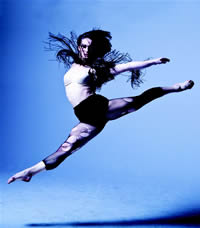A previously unknown coefficient of expansion took over the stage of Dana Auditorium during the Eastern Music Festival‘s annual keyboard spectacular, billed this year as the Piedmont Music Center Piano Gala. At first, there were two works on the program, scores by Bach and Liszt, scheduled for performance by EMF piano faculty members Awadagin Pratt and William Wolfram.
But would you drive the equivalent of halfway to Washington to hear the Chaconne? Or the “Dante” Sonata? Or even both? Maybe not. So we obtained the rest of the program, which also included the opening movement of Brahms’ first sonata, Chopin’s “Heroic” Polonaise, and a virtually unknown piano score by David Diamond, the centenary of whose birth is July 9. Things were definitely looking up for pianophiles contemplating a run to Greensboro.
The traffic wasn’t too bad. And the printed program insert was exactly as advertised.
Pratt got the evening underway, delivering on a rich-sounding Yamaha a dazzling rendition of Ferruccio Busoni’s transcription of that aforementioned Chaconne, which began life as the concluding part of Bach’s Partita No. 2 for solo violin. Old Bach – and probably thousands upon thousands of purists – would almost certainly not have been pleased. On the other hand, admirers of virtuoso pianism, underscored by some of the keenest artistic insight one can find anywhere on the concert circuit nowadays, would have loved every minute – as for sure the small audience of enthusiastic connoisseurs did in Dana Auditorium.
Would we have made the trip for this alone? In retrospect, yes.
Performances by three students followed. Piano students. One of whom sang. The singing was an addition to the program, illustrating that aforementioned coefficient of expansion.
First up was the Brahms sonata movement, handsomely realized by Tao-Yueh Tseng, a 16-year-old from Taipei, Taiwan. We don’t often get to hear this music, so this performance was welcome. And the playing was so good we hated not having him go on and play the rest of it.
Rixiang Huang was next, performing the Polonaise in A-flat, Op. 53. He’s 20, and he’s from Beijing. He played it with evident feeling and understanding, and he managed not to make it non-stop fireworks, although there was plenty of passion in the realization.
Both were very warmly applauded, and with considerable justification.
Wolfram then offered remarks encompassing the Diamond anniversary, some comments on the pieces he was to play, and an introduction for soprano (and pianist) Emily Chen, 19, of Newton, Mass., who sang an aria by Bach (“Komm in mein Herzenshaus,” from Cantata 51) and a song by Fauré (“Notre amour,” No. 2 of Three Songs, Op. 53), both accompanied with great sensitivity by Wolfram himself. The pianist had noted that many students at EMF do more than one thing, devoting themselves to more than just one instrument. Chen’s singing exemplified this to a T, and the results were pleasing in both works, the Fauré striking this listener as something very special, indeed.
Wolfram is a grand master of the keyboard art, and his compelling reading of Diamond’s “Myriologue” (1935, rev. 1969), composed for Martha Graham, gave ample evidence of his softer, gentler side, before Liszt’s “Dante” Sonata (the formal title of which is Après une Lecture du Dante: Fantasia quasi Sonata) reminded all present that this artist remains one of the finest players of his era.
Would we have made the trip for the Liszt alone? In retrospect, yes.
But there was more. Pratt returned to the stage at the end of the ovation for Wolfram to tell us that the Blues Brothers (as both were in blue shirts) had more tricks up their sleeves. A second piano was rolled out, some old, falling-apart scores were produced, and the slow movement of Brahms’ Sonata in F Minor, Op. 34b, for two pianos, radiantly filled the air. This further expansion of the program was particularly welcome, due to its rarity in this form, although music lovers will of course know it in its incarnation as a piano quintet.
And if that weren’t enough, there followed the Hungarian Dance No. 5, originally for piano, four hands. Another welcome expansion.
Scientists tell us that expansion is governed by pressure and heat, sometimes with infusions of gas.
Well, it took some gas to get to Greensboro (by car). The summer heat was on. And this concert, with its expanded program, was well worth traveling to hear, from start to finish.
The EMF continues through August 1. Details are in our calendar.











